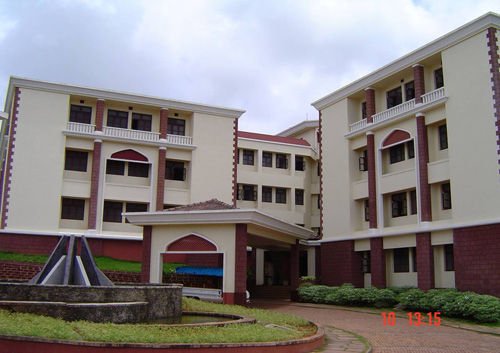MSc Pharmacology
About The Course
M.Sc. Pharmacology or Master of Science in Pharmacology is a postgraduate Pharmacy course. Pharmacology is the branch of medicine and biology concerned with the study of drug action. The course includes the formulate hypotheses in a specific area of pharmacological research and tests them through active research. M.Sc. Pharmacology trains the budding doctors with knowledge of correct prescription writing and its medico-legal importance. Also, help to excel them as good academicians or a research scholar. The duration of the course is two years and it is career orienting in nature that opens many jobs for them after its successful completion.
More Details About MSc Pharmacology
M.Sc. Pharmacology Eligibility
M.Sc. Pharmacology Course Suitability
How is M.Sc. Pharmacology Course Beneficial?
M.Sc. Pharmacology Employment Areas
M.Sc. Pharmacology Job Types
Advance Course in M.Sc. Pharmacology
- The basic eligibility criterion for pursuing M.Sc. (Pharmacology) degree is M.B.B.S. / B.D.S. and has secured at least 55% marks (50% for SC/ST candidates) or B.V.Sc./ B.Pharm. or B.Sc. degree course (3 years) or Bachelor of Physiotherapy (41/2 years course) with at least 60% marks (55% for SC/ST candidates).
- Some reputed colleges and institutes conduct an entrance examination for admission.
- Students those who want to acquire the understanding of pharmacodynamics, pharmacokinetics of drugs, their therapeutic implication in clinical practice and study of their safety profile.
- They should have oral and written communication skills; an ability to design, retrieve, handle and interpret complex data; critical analytical and problem-solving abilities and good organizational skills.
- Those who want to have research activities to develop the cost-effective drugs to meet the needs of the poor socioeconomic class also are a good suit for it.
- Other skills are decision-making skills, the ability to manage time, knowledge of safety and teamwork.
- It is beneficial to understand pharmacology in depth with an understanding of the rational use of drugs, clinical pharmacology and to prepare good quality teachers. Introducing students to advances in teaching technology, Computer Aided Learning, internet patent laws and procedures, research & developments etc.
- Degree serves as a basis for further higher studies in this field such as Ph.D. and M.Phil. for research work.
- They can become clinical biochemist; here they analyze and interpret data relating to patients’ samples to assist with the investigation, diagnosis and treatment of diseases.
- Candidates can also become a medical sales representative. They work strategically to increase the awareness and use of a company's pharmaceutical and medical products in settings such as general practices, primary care trusts and hospitals.
- Defense Services
- Government Agencies
- Hospitals
- Private Clinics
- Research Colleges/Universities
- Supply & Distribution of Medicines
- Associate Professor
- Clinical Research Associate
- Health Outcomes Executive
- Manager/Chief Scientist
- Pharmacologist
- Regulatory Manager
- Regulatory Project Manager
- Research Scientist
Ph.D. (Pharmacology)







